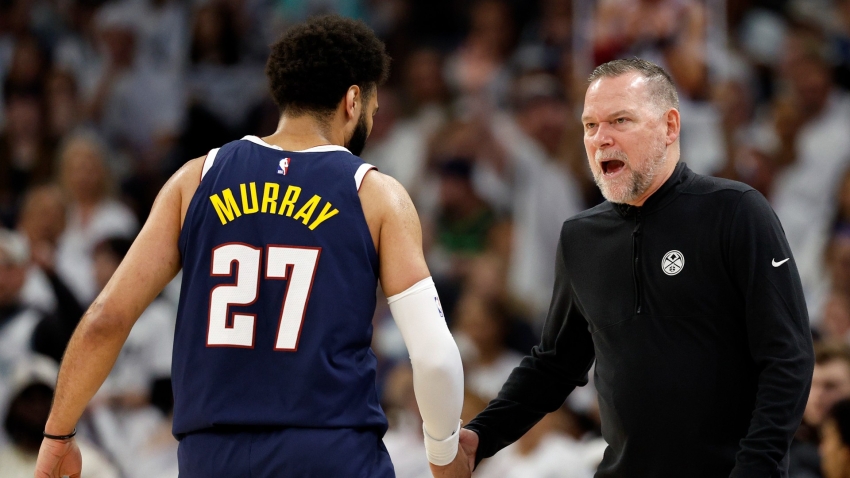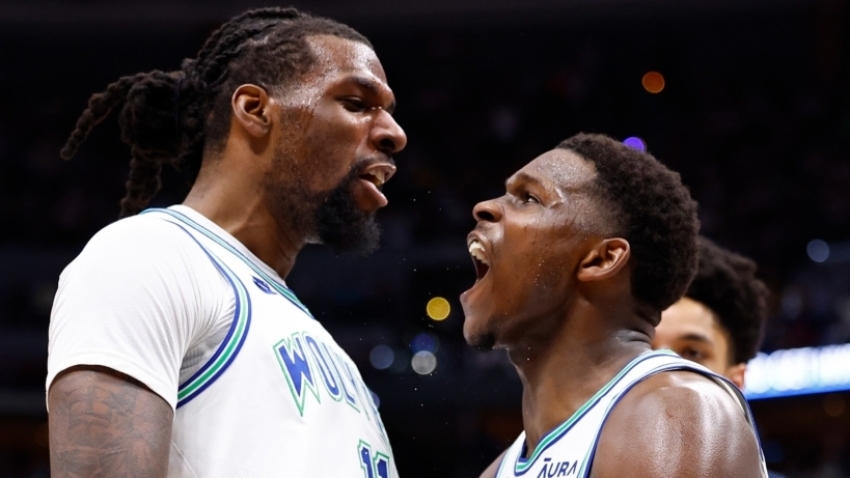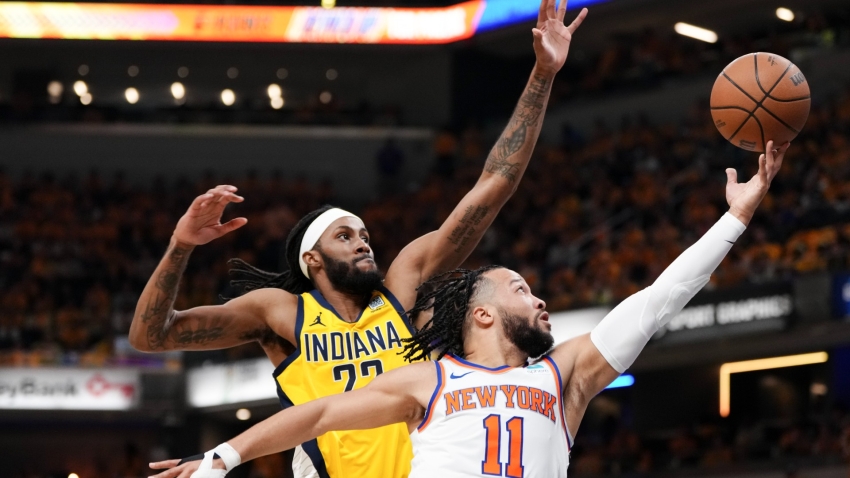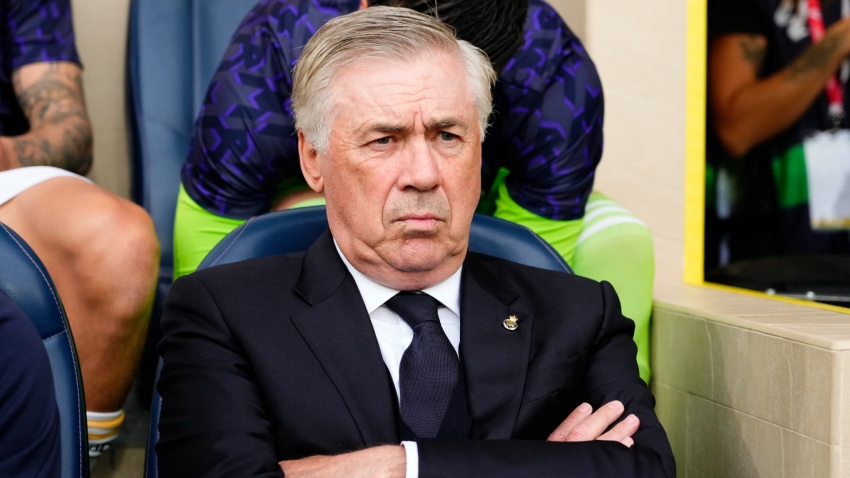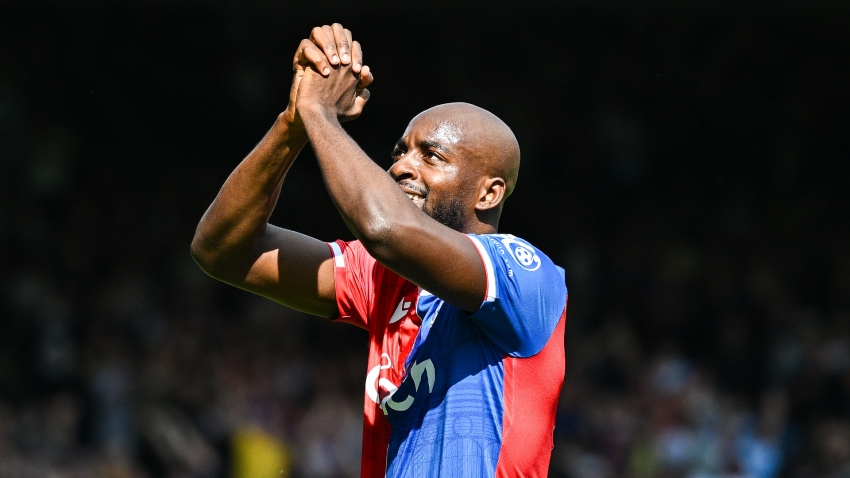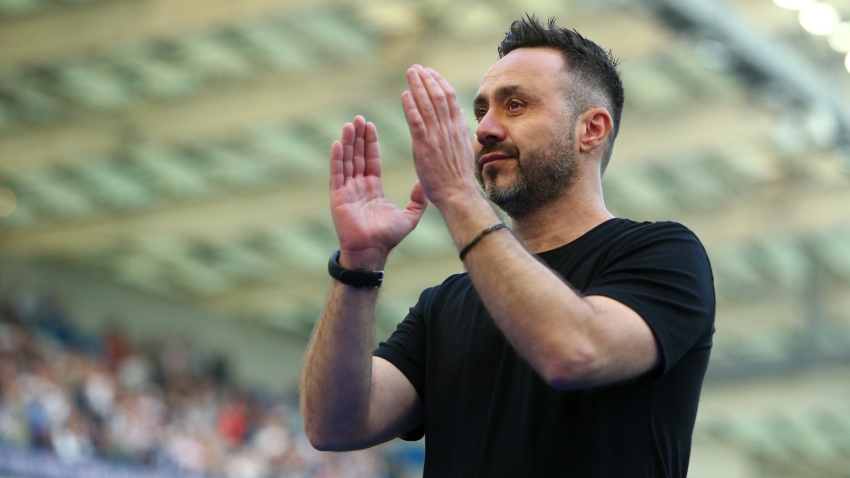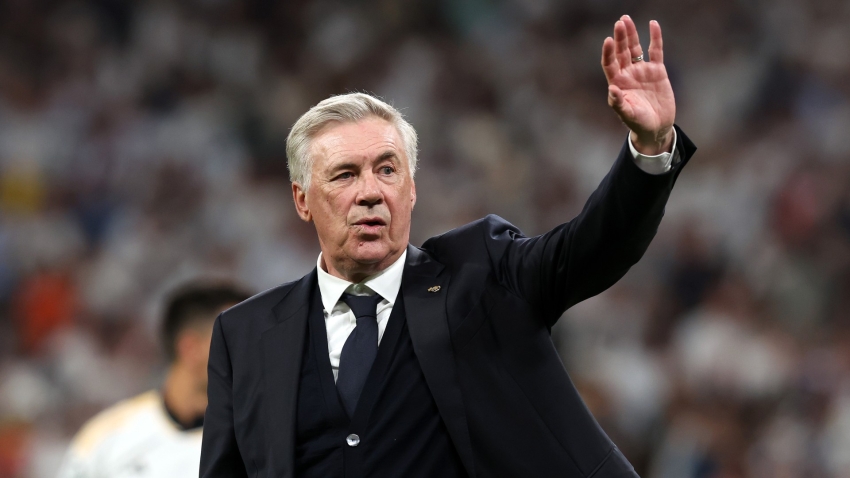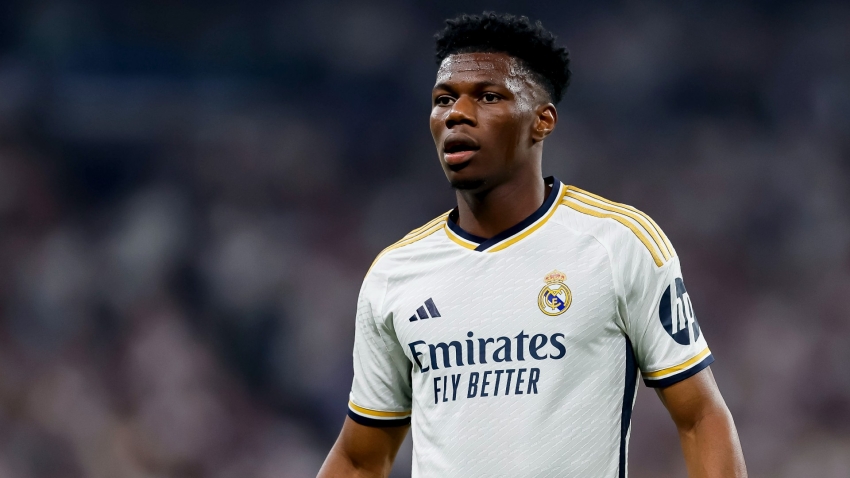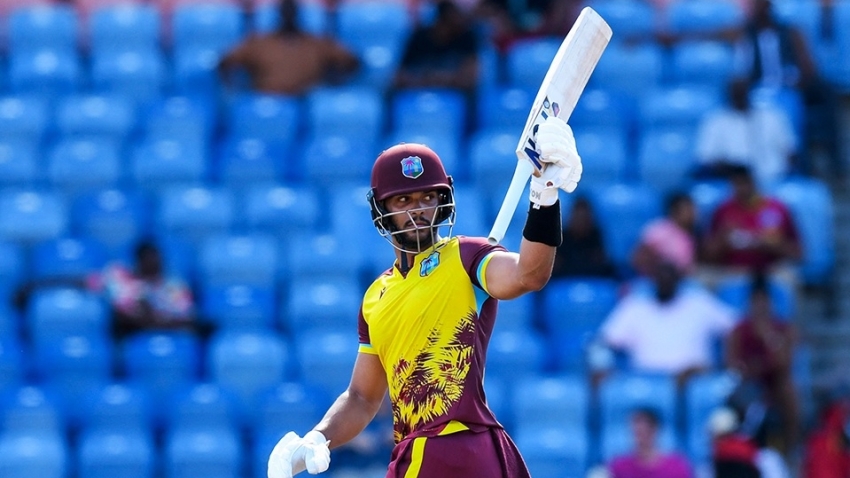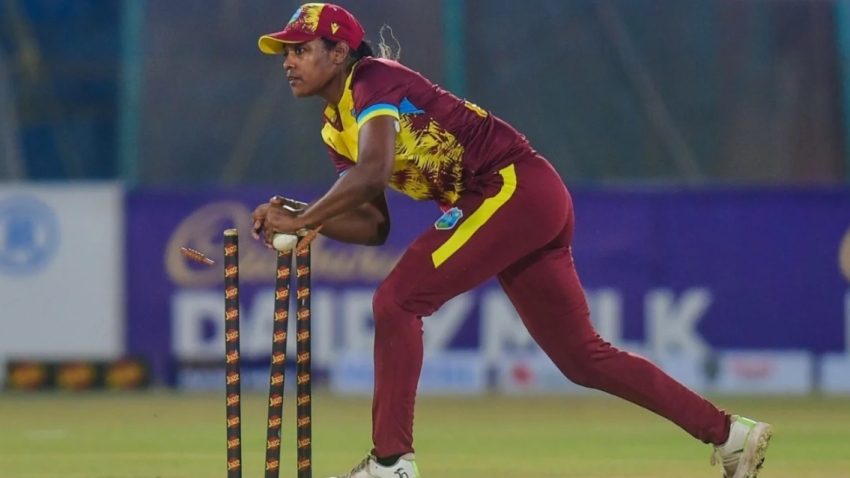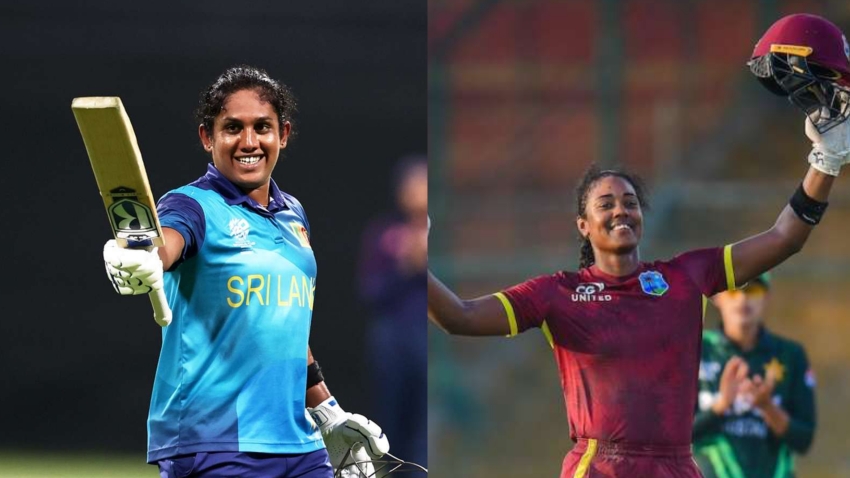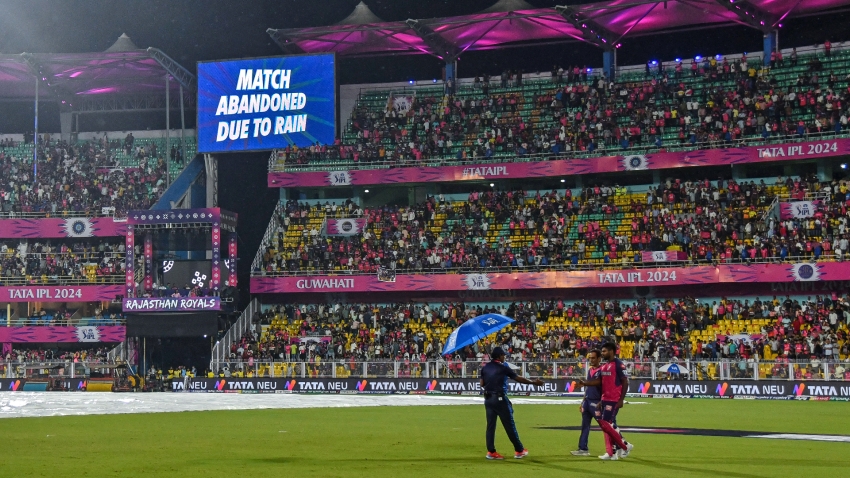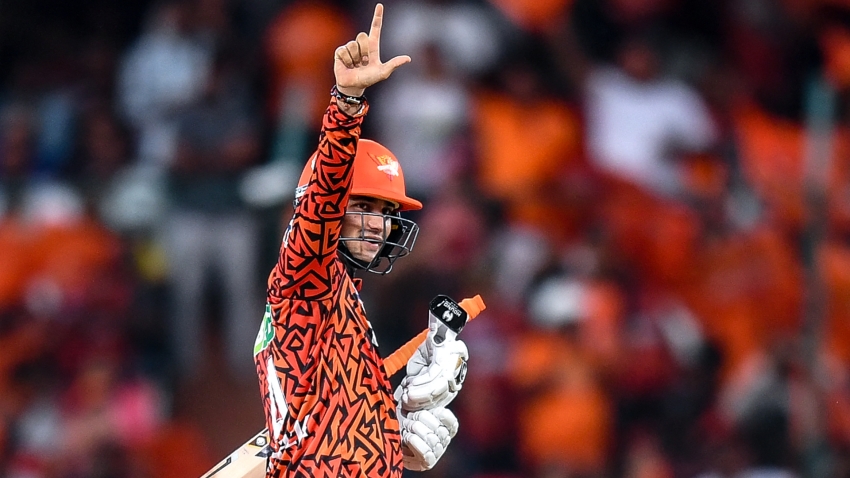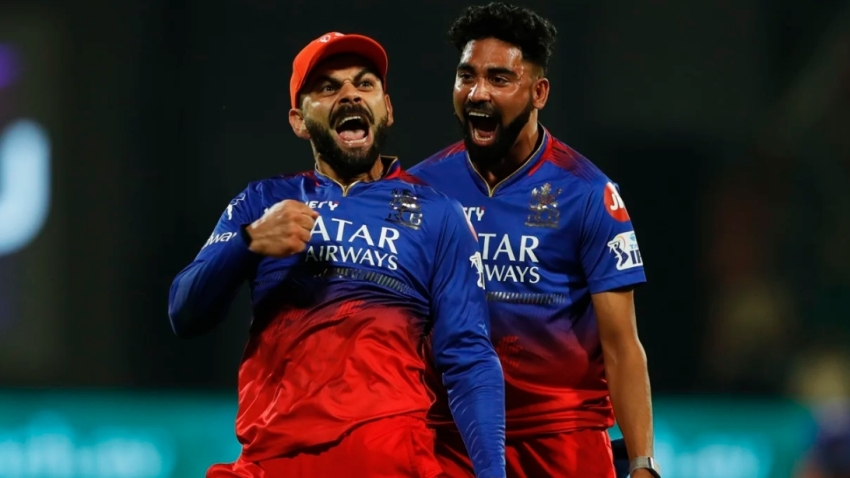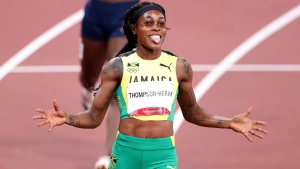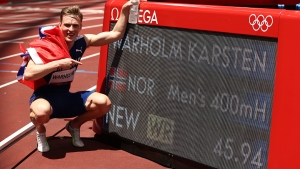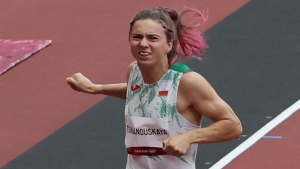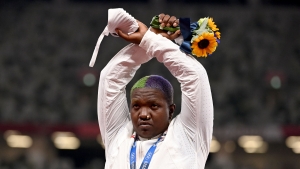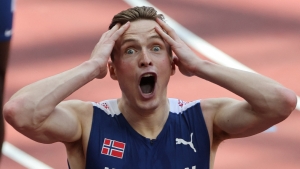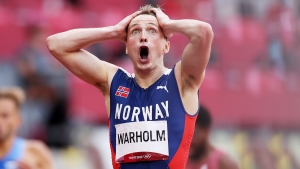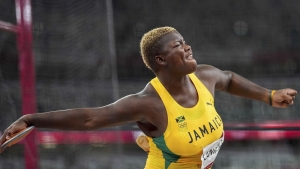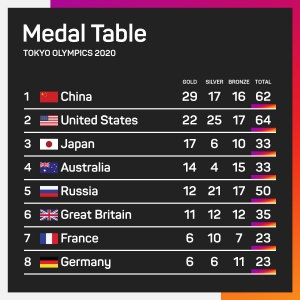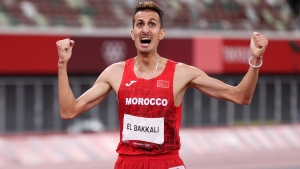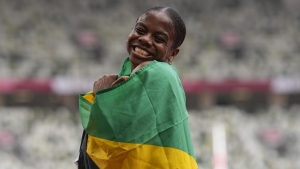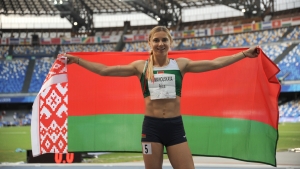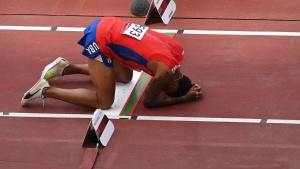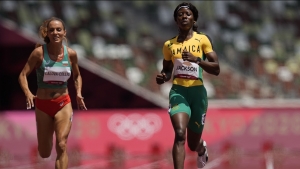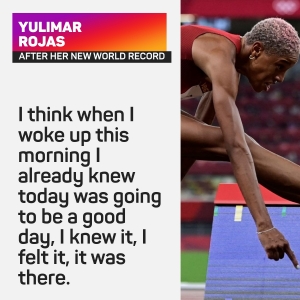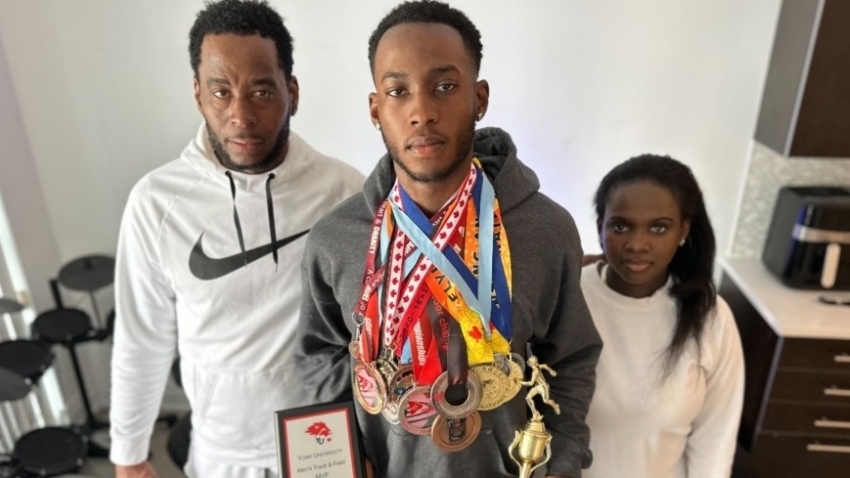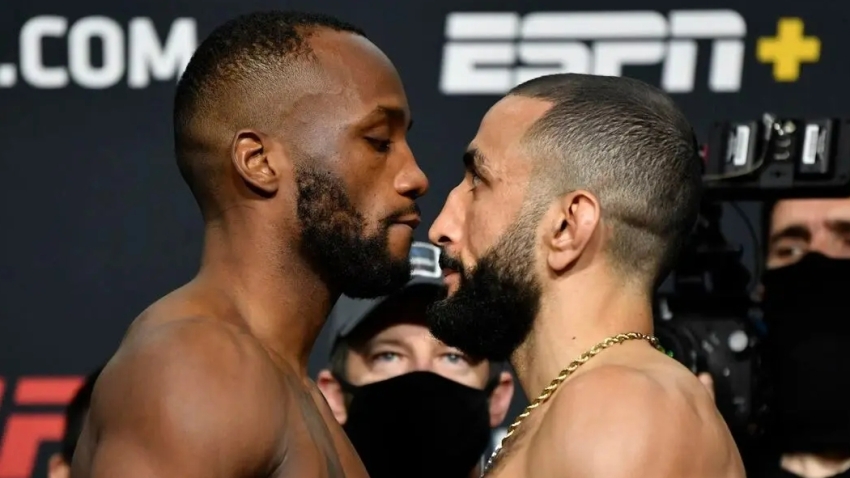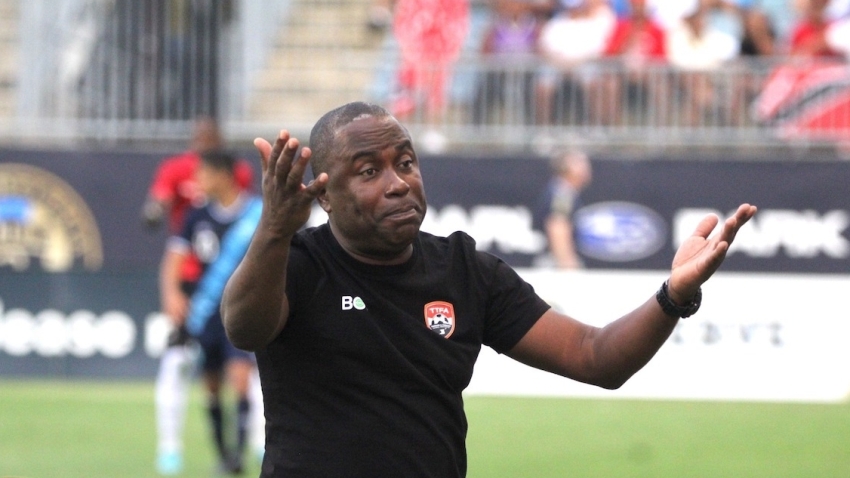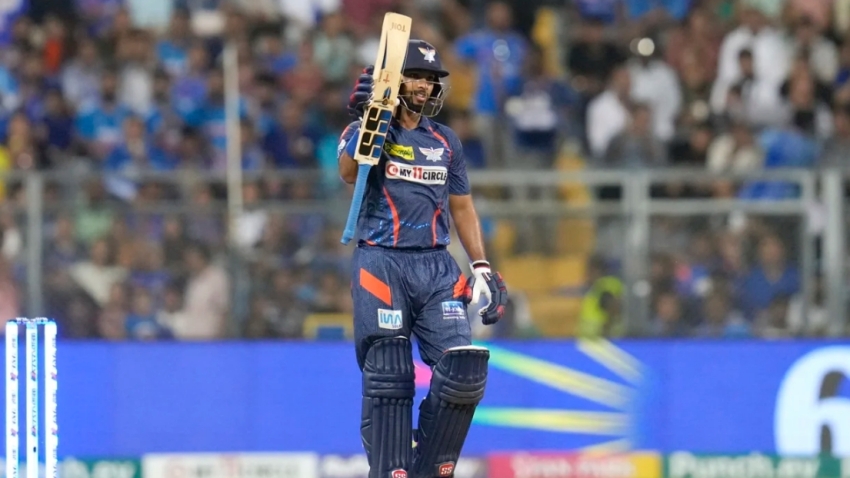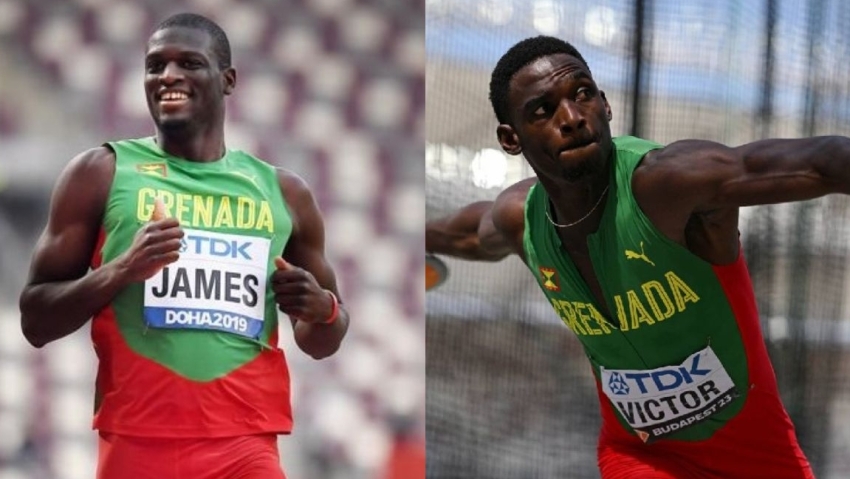Tokyo Olympics: Thompson-Herah completes sprint double-double with stunning 200m win
August 03, 2021Elaine Thompson-Herah won the sprint double-double at the Olympic Games after storming to victory in Tuesday's 200 metres final.
The Jamaican won in a new national record time of 21.53 seconds in Tokyo, the second-fastest in the history of the event.
Thompson-Herah, the 100m champion, also claimed gold over both distances in Rio de Janeiro five years ago. Usain Bolt is the only other male or female sprinter in history to win both titles at consecutive Games.
Christine Mbomba, barred from her preferred 400m event due to naturally high testosterone levels, took silver with another world-best under-20 time of 21.81. United States star Gabrielle Thomas won bronze ahead of Jamaican great Shelly-Ann Fraser-Pryce.
Unsurprisingly, Thompson-Herah admitted her exploits had left her in need of a rest, having followed her 100m gold with a 200m run just 0.19 seconds short of Florence Griffith-Joyner's 1988 world record.
"Honestly, I just need to sleep!" she said to the BBC.
"I have not slept since the 100 metres, honestly my body is in shock mode, but I still had my composure to come out here.
"I knew my time wouldn't be fast because yesterday we ran two rounds, which took a lot from me, I equalled my PB last night. So to come out to get a national record and be two-time Olympic champion I am so happy.
"I was begging for the line, but you have to hold your technique through the line.
Thompson-Herah added: "It feels good to be in the history book, to set a barrier for the other generation of athletes coming up.
"We have got a lot of athletes coming from Jamaica, it means a lot to me to set this barrier."
Tokyo Olympics Recap: Warholm hurdles into history, Durant inspires USA into basketball semis
August 03, 2021Norway's Karsten Warholm smashed the world record in the men's Olympic 400 metres hurdles final, breaking the 46-second barrier on the way to gold medal glory.
Warholm finished in 45.94 seconds, well ahead of his own previous record mark of 46.70. USA's Rai Benjamin claimed silver in 46.17, also beating the old world record, with Alison dos Santos taking bronze in 46.72.
"It's by far the biggest moment of my life," Warholm said. "It defines everything, all the hours I put in, everything that my coach has been working for.
"With all the respect for all the athletes, there are athletes that were not good that will get an Olympic gold. Rai running 46.17 would deserve a gold medal. It is crazy, it is just an honour to be a part of it. I never thought in my wildest imagination that this would be possible."
Asked about his dash to the line in the closing metres, Warholm added: "I couldn't even feel my legs. I knew I had a crazy American trying to catch me, so I ran for my life."
Germany's Malaika Mihambo admitted she could not watch the finale to the women's long jump as she won gold.
Mihambo took the lead with a jump of 7.00m with her final attempt before USA's Brittney Reese and Nigeria's Ese Brume had their last jumps.
Neither could better the leading mark, with Reese settling for silver with 6.97 metres on countback ahead of Brume.
"It was really hard to watch, so I tried to just have a sneak peek on the display and see how far it was," Mihambo said.
"I really don't like this position where you cannot do anything about it, and you just have to let the girls do what they're able to do. You have to wait, so it was a horrible moment, but at least it was short.
“I feel overwhelmed. It was, I think, the most exciting women’s long jump competition in history."
DURANT DOMINATES AS USA SURVIVE SCARE
The United States did not have it all their way but triumphed 95-81 over Spain to seal a spot in the men's basketball semi-finals.
Spain led by as much as 10 points in the second quarter before USA drew level by half-time and accelerated in the second half. Spain again closed within four points of the gold medal favourites in the final quarter, inspired by Ricky Rubio's 38 points.
Kevin Durant excelled for Team USA, with 29 points and four assists, while Jrue Holiday contributed 12 points and five assists as they capitalised on a 17-9 turnover differential.
USA lost to Australia and Nigeria in exhibition games prior to Tokyo 2020 before losing their Olympics opener to France but have since steadied.
The winner of Australia-Argentina will play USA in the semi-finals on Thursday.
NBA duo Zoran Dragic (27 points, six rebounds and four assists) and Luka Doncic (20 points, eight rebounds and 11 assists) starred as Slovenia also progressed to the semi-finals with a 94-70 win over Germany.
CARRINGTON'S GOLD KAYAKING DOUBLE
New Zealand's Lisa Carrington had a golden day in the kayaking, remarkably winning two gold medals within an hour.
Carrington won her third straight gold in the women's kayak single 200m with an Olympic best time of 38.12 seconds, ahead of Spain's Teresa Portela and Denmark's Emma Jorgensen.
The New Zealander backed up alongside Caitlin Regal to win the women's kayak double 500m final with a world best time of 1:35.785.
Carrington joined fellow kayakers Ian Ferguson and Paul MacDonald and equestrian great Sir Mark Todd as the only New Zealanders to have won five medals at the Olympic Games.
The 32-year-old may win more medals too, competing in the K1 500 event which starts on Wednesday.
“Today was about taking just one race at a time," Carrington said. "There's a plan, and it was just about executing it. For me, it was just trying to stay in the moment and doing the best I can. We've worked really hard and knew today was going to be a big day.”
HENDRICKX POWERS BELGIUM INTO HOCKEY FINAL
World champions Belgium qualified for the gold medal match of the men's hockey after a commanding final quarter sealed a 5-2 win over India.
Belgium piled on three fourth-quarter goals to guarantee a medal in the decider where they will face either Australia or Germany.
Alexander Hendrickx scored a hat-trick including two of the Red Lions' goals in the final quarter after India had fought back from an early deficit to lead 2-1 at quarter-time.
Drag flick expert Hendrickx has scored an unrivalled 14 goals during Belgium's Tokyo 2020 campaign, eight clear of the next best, Australia's Blake Govers.
Hendrickx said: "It's really a team job that comes together. It's my name on the scoresheet, but it's a team job."
World number one Australia and sixth-ranked Germany meet later on Tuesday to determine the other gold medal match finalist.
Olympic chiefs have demanded answers from Belarus before the close of play on Tuesday over the saga involving sprinter Krystsina Tsimanouskaya.
Tsimanouskaya refused to board a flight home from Japan after allegedly being taken to the airport against her will, having publicly criticised her team's organisation on social media.
She competed in just one event, finishing fourth in a 100 metres heat, before being pulled out of the Games by Belarusian officials. Due to also compete in the 200m, she claimed a Belarusian coach entered her for the 4x400m relay despite her never racing in the event before.
Tsimanouskaya suggested that was a result of members of the team being considered ineligible due to not completing enough doping tests.
The Belarusian Sport Solidarity Foundation indicated Tsimanouskaya feared for her life upon returning to Minsk. The country is under the authoritarian leadership of president Alexander Lukashenko, whose son Viktor heads the national Olympic committee (NOC). Both men were banned last December from attending Tokyo 2020.
Now the International Olympic Committee (IOC) is stepping up its probe into what occurred.
IOC spokesperson Mark Adams said on Tuesday: "We've asked for a report from the [Belarusian] NOC today. We requested it yesterday, we want it today.
"We have decided to launch, not surprisingly, a formal investigation, which will be led by the IOC administration. We need to establish the full facts, we need to hear everyone involved. That obviously can take time."
Tsimanouskaya has been granted a Polish visa for now, and Adams said the 24-year-old spoke to the IOC twice on Monday, assuring that she now feels "safe and secure".
She has had police protection since alerting officers at Haneda airport to her situation.
"We've also now contacted the NOC of Poland," Adams said. "In terms of what the IOC can do for her in terms of her future we have talked to them with regard to her sport after her arrival in Warsaw, if that is where she does indeed choose to end up."
Tokyo Olympics: Games chiefs step up investigation into Raven Saunders 'X' podium-protest
August 03, 2021Raven Saunders could still face punishment for her crossed-arms 'X' political protest on the Olympic Games podium, despite USA team officials clearing her of any wrongdoing.
The shot put silver medallist raised her arms above her head in a pose she said represented "the intersection of where all people who are oppressed meet".
Saunders, who is black and gay, has been backed by the United States Olympic and Paralympic Committee (USOPC), but that is not the end of the matter.
The USOPC said in a statement on Monday: "Per the USOPC's delegation terms, the USOPC conducted its own review and determined that Raven Saunders' peaceful expression in support of racial and social justice that happened at the conclusion of the ceremony was respectful of her competitors and did not violate our rules related to demonstration."
Yet political statements on the medal podium are not permitted at Tokyo 2020, even though rules on such actions have been relaxed elsewhere by the International Olympic Committee (IOC).
In the wake of the USOPC remarks, the IOC was seeking further answers from the Americans on Tuesday.
Mark Adams, the IOC spokesperson, said in a briefing: "We've seen their public opinion and we're in touch with them.
"We've written a letter asking for some further information, to be able to evaluate the next steps, if any, that should be taken.
"Obviously, the Games are held under the Olympic charter and the rules of the Olympic movement, so let's wait to see what clarification we get from USOPC."
It seems unimaginable that the IOC would take any drastic action, given the outcry that would follow.
Saunders tweeted on Sunday: "Let them try and take this medal. I'm running across the border even though I can't swim."
The Olympic Games has seen few such protests on podiums. Perhaps the most notable was the 'Black Power' salute by Tommie Smith and John Carlos, gold and bronze medallists respectively in the 200 metres at the 1968 Mexico City Olympics, when both raised a black-gloved fist as the US national anthem was played.
Both were expelled from the Games but got to keep their medals.
Tennis great and long-time equal rights activist Billie Jean King has backed Saunders, writing on Twitter: "Her gesture was meaningful and respectful. There is nothing for the IOC to investigate."
Behind the scenes in Tokyo: Buses and stadium hopping - navigating the world's media in a pandemic Olympics
August 03, 2021Hosting an Olympic Games at any time can be a logistical nightmare. Doing so during the height of a deadly pandemic only exacerbates the difficulties.
For example, how do you go about trying to appease a largely Olympic-sceptic city like Tokyo, whose residents were fearful of the effect welcoming thousands of athletes, officials and world's media would have in increasing coronavirus infection rates.
Stats Perform's man on the ground, Peter Hanson, provides a look at how travel is working at Tokyo 2020 to assuage the fears of the locals, and a behind-the-scenes glimpse of his journeys to the arenas he has visited.
BUSES, BUSES AND MORE BUSES...
Let's start with a secret.
This isn't my first time in Tokyo. I actually visited here seven years ago with a couple of American friends. The three of us had recently been in Bangkok for our buddy's Thai wedding and had decided to make the hop across to continue our travel adventure.
My overriding memories of that first jaunt were just how futuristic it felt, the signs and billboards burning bright LED lights directly into my quickly faltering retinas. For a major city, I remember also thinking how clean the place was. I'm a big fan of city dwelling – but most can be a little untidy in places.
The other thing that sticks out is how absolutely hopeless I was at navigating my way around. This is nothing new, I can barely get around the streets of Sheffield and Rotherham – the places I have lived my entire 31 years – back in England without needing to follow Google Maps. Luckily for me, my travel companions are not quite so directionally challenged, so I largely just hopped on whatever subway they did and didn't ask questions...
So, when I first got asked if I'd like to cover these Games my first reaction was "yes, absolutely". My second was "better start saving up for three weeks' worth of Ubers".
But these are pandemic times, and pandemic times call for pandemic measures. There are rules in place and restrictions to follow, and one of the great logistical challenges Tokyo 2020 organisers have faced is how to ferry around hordes of the world's media while restricting their interactions with locals – many of whom were not keen on hosting the Olympics at all – during the Games.
I have to say, the end result has been pretty impressive. As soon as you enter the departure hall at the airport, you are ferried onto a shuttle bus, taken to a taxi rank being held inside a huge car park around 20 minutes away, popped into a taxi and driven straight to your hotel.
For someone as dense with directions as I am, this was a bit of a relief.
But that was just the first problem to solve. For the first 14 days of your visit to Tokyo, you have to agree not to go anywhere other than your hotel or to Games-specific locations in a previously agreed Activity Plan.
For that fortnight you are also told not to take public transport anywhere. To solve this issue, Tokyo 2020 has created quite the travel network.
The media transport mall at the media centre is connected to nearly all the Games venues. There are over 30 terminals (not quite like you would see in a normal indoor bus depot – rather a series of stops in a huge outdoor space with sort of crudely constructed tents to keep you sheltered should it rain).
Approximately a third of these stops are connected to a list of Tokyo 2020-approved hotels, running buses to our accommodation 24 hours a day (although, understandably, between midnight and 6am these run much less frequently).
The rest ship us off to the Games venues, with drop-off points roughly a five-minute walk to the various media centres.
It is not the only way to get around a city still under a state of emergency. Tokyo 2020 has created the Transport by Chartered Taxi system, whereby you can book Games-specific vehicles to cart you around to the desired location.
After that initial two weeks, you are technically allowed to use public transport (and are provided a travel pass to do so) but actively encouraged to keep using the media network to limit social interactions with the regular public.
MARVELLING AT THE MEDIA CENTRE
One of the things I was most looking to when entering Japan was seeing the media centre.
Okay, sure, partly because I'd been couped up in quarantine for three days and the escape from the four walls of my hotel room was a blessed relief.
But mostly because I was itching to see for the first time what a media centre for an Olympics looks like.
Once taking the bus from the hotel to the media centre, getting in is quite a smooth process. The media complex – which adjoins to the broadcasting centre – is so big that from the transport mall you have to take a shuttle bus. From there, you undergo a temperature check, lower your mask so the security cameras can get a good look at your face, and scan your accreditation card before waiting nervously for the green light to give recognition you are an approved member of the media.
The first impression was just how big the complex is. There are rows upon rows of hot desks, all with plug sockets and LAN cables, while every which way you turn there are TV monitors showing a variety of different events.
There are private offices everywhere (for the likes of the IOC and British Olympics association), medical rooms to drop off PCR tests, help desks for everything from tech woes to transport, food courts, cafes, fancy-looking vending machines…you name it, over several vast floors it's (probably) got it.
TRIBUNE TRAVAILS AT THE AQUATICS CENTRE
The sad thing about the Tokyo Aquatics Centre is the fact it serves as a reminder that these are the Games that could have been.
Opened in February 2020 close to Tokyo Bay, it is a hugely impressive structure that holds approximately 15,000 spectators – sadly, save for the pockets of athletes cheering on their team-mates, these seats are not in use and the bright-blue glow of the pool and the huge screens present an almost eerie feeling without the packed rafters.
My first trip there was an exciting one, though. It would act as my first "live" view of these Games and I got to witness TeamGB's first gold medal of Tokyo 2020 thanks to Adam Peaty, and caught most of Tom Daley's emotional triumph in the men's synchronised 10 metre diving.
It's a process much like the media centre to get in, only here you have a physical thermometer placed on your forehead to check you don't have a temperature. But as at all the venues you do go through airport-style checks before heading down to the media. It was at the aquatics centre I was asked to taste the bottle of water in my bag and, even though I knew it wasn't possible, I did start to panic and wonder what if it had been poisoned…
It hadn't of course and off I popped down the road towards the media area, which for the aquatics centre is a long tent that also adjoins to the press conference room.
So far so good. My issue came again with my aforementioned navigation skills. My friends back home call me 'Captain Direction' I'm that hopeless with them (okay, that's a nickname I actually gave myself but still…). The problem I encountered was trying to find my appropriate area in the media tribune, walking through about 10 different doors, and walking up and down several hefty flights of stairs before I reached the conclusion that I had probably been in the right place from the start…
INSPIRED BY SIMONE AT THE GYMNASTICS CENTRE
Before I travelled to Tokyo, I had a rough idea in my head of some of the things I wanted to do. One at the very top of my priority list was seeing Simone Biles live in the gymnastics.
So, on the first Tuesday of the Games I managed to get a high-demand ticket for the Ariake Gymnastics Centre to watch the final of the women's team event.
The trip there was probably my favourite, because unlike a lot of the other buses that serve just a single venue, this one was bit of a stadium hop around Ariake – a district of Koto in Tokyo.
Before I made it as far as the gymnastics centre, I was treated to a look at the Ariake Tennis Park – where there was a deep temptation to jump off and try and catch a glimpse of Novak Djokovic or Naomi Osaka – and Ariake Arena, where the volleyball was being held.
Eventually, I arrived at the gymnastics centre – an impressive temporary venue, which after the Games will be turned into a 12,000 seater sporting arena, and went through the now customary protocols to get inside.
Unlike my first journey to the aquatics centre, finding my way around here was an absolute breeze. All of the media facilities are inside the building, and there are signs pretty much every few yards directing you to the tribune.
I should at this point make another admission. I don't know the first thing about gymnastics. In fact, when I was at school I was so hopelessly bad at the sport in P.E. or gym or whatever you call it where you are, that my "routine" consisted of a shambolic forward roll and jazz hands. In my defence I was short, stocky, not particularly agile and carrying about 20lbs extra weight. All of those things still stand true today.
But it was too good an opportunity to pass up and it seemed the same for a lot of people in there. I sat next to a journalist from Denmark (whose son by the way is named Peter Hansen – hello Spider-Man meme!) who was there for the exact same reason as me, to see Biles in person.
There was no way to predict what came next, with this genuine living legend managing just one rotation before sitting out the rest of the event. She later revealed she has been contending with mental health issues.
Sitting in the news conference room, it was impossible not be completely full of admiration for this frank admission. Her bravery to send that message, I think, is more important than any achievement she has in gymnastics.
DISCOVERING THE OLYMPICS STADIUM
Another on my bucket list for this trip was obviously to check out the Olympics Stadium. I decided to book in for the athletics at the first opportunity and go to the morning session last Friday.
By that point, I'd been in Tokyo for 10 days and the long days and sleepless nights had taken their toll…so my first journey there I can't recall too much to you because I took a decent snooze on the 30-minute trip.
But, when I got there my initial thought was wow. I absolutely love sports stadia, you can't be a sports-obsessed kid like I was and not. I've seen some impressive arenas in my time – Wembley, Soccer City in Johannesburg, Yankees Stadium…Hillsborough.
And this is right up there among the best I've been to. Only, after that initial buzz I must say I was almost overwhelmed by a sudden sadness.
I think maybe because at the other venues I'd visited I was so one-track minded in what I wanted to do whereas my first visit here was more about finding my bearings and preparing for a busy week to come.
I remember going to one of the morning sessions at London 2012 and the Olympic Stadium was absolutely packed. It was weird seeing this place (with a capacity of 68,000) empty knowing it would stay that way for the rest of the Games, and knowing that really it deserved better.
Karsten Warholm revelled in the "wow" factor of his astonishing 400 metres hurdles triumph as the world record was obliterated at the Tokyo Olympics.
The 25-year-old Norwegian ran 45.94 seconds, breaking the record for a second time in five weeks, after Kevin Young previously held the global mark for 29 years.
"I didn't touch one hurdle. I was even able to find another gear coming home, so 'wow'," Warholm said.
"It's just so big. It's almost like history here. It was the only thing missing from my collection. I had a World Championships [gold medal]. I had European Championships, I had the world record, the European record.
"The Olympic gold medal is what everybody talks about. I knew this race was going to be the toughest of my life, but I was ready."
The top three in the race all went under 47 seconds and beat the previous Olympic record, with silver for American Rai Benjamin in 46.17 and bronze going to Brazilian Alison dos Santos in 46.72.
Warholm ran 46.70 in Oslo at the start of July to slash 0.08 seconds off Young's long-standing record, which was set at the Barcelona Olympics.
There were many ways to dissect the magnitude of this latest record, and one was to look at how the world record shifted by just 0.75 seconds from Ed Moses running 47.45 in 1977 until Warholm's 46.70 in July.
To now scythe a further 0.76 seconds off the all-time mark represented a staggering achievement.
"I mean, man it’s so crazy. It’s by far the biggest moment of my life," Warholm said.
"It defines everything, all the hours I put in, everything that my coach has been working for.
"I dream about it like a maniac, I tell you. I sleep all night on it. I spend all my time thinking about this, so just getting this last medal into my collection, it’s complete.
"I can't sleep. I've spent thousands of hours thinking about this.
"I had this special feeling in my chest, you know when you are nervous. I was just thinking this is the feeling that I had when I was six years old. I've never had that feeling since I got older, but yesterday I had it."
Warholm had a healthy lead heading into the final 150 metres but came under pressure from Benjamin over the final two barriers, the gap closing.
The 25-year-old from Ulsteinvik held his nerve and maintained his rhythm, though, sprinting away to post a record that could stand for many years to come.
Some even compared it to Bob Beamon's 1968 long jump world record in Mexico City, which stood for 23 years and remains the second longest leap of all time.
Benjamin was reduced to tears after the race, having delivered the performance of his life but still finished on the second step of the podium
"Knowing that you want to be the best, this is what it costs. It's hard. It hurts. But it is what it is," Benjamin said.
"I always give myself 24 hours to process things. Right now I am just full of emotion. I have worked so hard. This is what matters. I got a medal but it just hurts to lose."
He added: "I'm a dog. I'm a fighter. It's my first Olympics. I made some mistakes that cost me, but it's all right. I'll fix it."
Tokyo Olympics: Warholm sets stunning 400m hurdles world record, breaking 46-second barrier in gold run
August 02, 2021Karsten Warholm set a massive world record in the men's 400 metres hurdles as the Norwegian landed gold at the Tokyo Olympics.
He became the first man to dip under 46 seconds, setting a startling time of 45.94 seconds as he fended off American Rai Benjamin, who clocked 46.17.
The top three in the race all went under 47 seconds and beat the previous Olympic record, with bronze going to Brazilian Alison dos Santos in 46.72.
Warholm was already the world record holder, setting a time of 46.70secs in Oslo at the start of July to break the previous best of 46.78 that had been held by Kevin Young since the 1992 Barcelona Olympics..
Now he has demolished his own mark, helped by being pushed all the way by Benjamin.
Warholm had a healthy lead heading into the final 150 metres but then came under pressure from the USA star over the final two barriers, the gap closing.
The 25-year-old from Ulsteinvik held his nerve and maintained his rhythm, though, sprinting away to post a record that could stand for many years to come.
All three medallists went under the previous Olympic record.
Gold in the women's long jump went to Germany's Malaika Mihambo, whose final-round effort of 7.00 metres saw her edge ahead of America Brittney Reese and NIgerian Ese Brume, the silver and bronze medallists, who both posted best leaps of 6.97m.
Lawrence, grateful, satisfied with Olympic discus performance despite missing out on medal
August 02, 2021Jamaica’s Shadae Lawrence expressed satisfaction with her performance, despite not making it to the medal podium in the final of the Women’s Discus on Monday.
Lawrence made history by becoming the first-ever Jamaican woman to make an Olympic discus final.
She threw a distance of 62.27 metres in group A of the qualifying round to finish third and advance to the final. During the final, Lawrence fell just below her qualifying mark to throw 62.12 metres. That throw landed her a top-eight spot as she finished 7th.
The 25-year-old took to Instagram to share her gratitude and emotion. She posted a photo of her in the throwing circle along with a caption saying, “I want to thank God for bringing me this far. The journey was rough but he didn’t give me more than I could bear. The aim for this season was to make a top 8 finish at the Olympic Games. On the journey I found out I could do much more. A 7th place finish is what I’m blessed with and I am grateful”.
The second time Olympian went on to thank her coach, Julian Robison, whom she said believed in her from the start and never doubted her talent. She also thanked the University of South Florida where she attends school, for their support along her journey. Lawrence ended her caption by thanking her family for their support over the years and sent a special shout-out to her sister and mother.
The women’s discus was won by the USA’s Valarie Allman with a throw of 68.98. Silver went to Germany’s Kristen Pudenz and Cuba’s Yaime Perez gained bronze.
China have a commanding lead at the top of the Tokyo 2020 medal table following another hugely successful day at the Olympics.
Five gold medals on day 10 took China's tally for the Games to 29.
Two of those came in weightlifting as Wang Zhouyu prevailed in the women's 87kg category and Li Wenwen set an Olympic record in the +87kg division.
Zhang Changhong won the men's 50m air rifle three positions, China's women took team sprint gold in the velodrome and Liu Yang beat compatriot You Hao in the men's rings final.
It means China are seven golds ahead of the United States, with two more Americans becoming Olympic champions on Monday.
Jade Carey was triumphant in the women's floor exercise final and Valarie Allman took gold in the discus throw.
Japan are third in the table after a day in which they failed to add any golds to their tally of 17.
Australia (14 golds) and the Russian Olympic Committee (12 golds) are fourth and fifth having also been kept off the top step of the podium.
Breathing down the neck of the Russian Olympic Committee are Great Britain, their tally of golds increased to 11 with victory in team eventing.
Soufiane El Bakkali ended Kenya's dominance in the men's 3000m steeplechase by claiming a first Olympic gold medal for Morocco in any sport since 2004.
The Kenyans have set the standard in this event in recent times, winning gold at each of the previous nine Games.
But El Bakkali put paid to that streak, claiming victory ahead of Ethiopia's Lamecha Girma as Benjamin Kigen collected a bronze for Kenya.
The last Moroccan to claim prevail sport was Hicham El Guerrouj, who won the men's 1500m and 5000m in Athens 17 years ago.
"I am so used to seeing Kenyans win, it's a big accomplishment for me," El Bakkali said.
"I have been aiming for this for years and this was my opportunity to show that Morocco is capable of winning this prize in front of the Kenyans.
"I have tried so many times to compare myself with the Kenyans and Ethiopians to see whether I could reach this gold, and I did."
HASSAN HAT-TRICK BID ON TRACK
Sifan Hassan is aiming to become the first athlete to win a 1500m, 5000m and 10,000m treble at a single Olympic Games.
The Ethiopian-born Dutchwoman, who recovered from a fall to get through her 1500m heat earlier in the day, got her bid off to an outstanding start with victory in the 5000m on Monday.
"After I fell down, it cost me a lot of energy, I went home and I wanted to sleep," said Hassan, who claimed the Netherlands' first Olympic gold in athletics since 1992.
"Many people think I am crazy. I think also I am crazy. Many people think this is crazy and I am not even going to get one medal.
"Life is not about the gold, the winner; it's also about following your heart."
CANADA END TEAM USA HOODOO TO REACH FINAL
Canada sensationally ended a 36-game winless run against the United States, Jessie Fleming's penalty securing a place in the women's football final.
The Canadians had not beaten Team USA – four-time Olympic gold medallists – since March 11, 2001.
However, their luck changed with Fleming's 74th-minute penalty settling the semi-final after VAR ruled that Tierna Davidson had fouled Deanne Rose.
Canada's reward is a gold-medal showdown with Sweden, who beat Australia 1-0 thanks to Fridolina Rolfo's second-half strike.
On a brighter note for the United States away from football, it was announced Simone Biles will take part in Tuesday's balance beam final.
FOUR-MIDABLE LOPEZ
Mijain Lopez became the first male Greco-Roman wrestler to win four gold medals at the Olympics after defeating Georgia's Iakobi Kajaia in the 130kg final.
His success saw him receive a congratulatory call from Cuba president Miguel Diaz-Canel, while he did not rule out carrying on through to Paris 2024 either.
"I feel happy, proud to be the best in the world and make history," Lopez said.
"I've had a long career, working hard to make these goals and break this record.
"I've been working so hard to get to this point. Being able to break this record today for me is a great achievement, because I've faced the best and I can be proud."
DEJA VU IN THE WOMEN’S HOCKEY
Having contested the 2016 final in Rio, Great Britain and the Netherlands will face off again at the Games - this time in a mouth-watering last-four showdown.
Team GB required a shoot-out to see off Spain following a 2-2 draw, with Hannah Martin and Sarah Jones scoring their efforts while goalkeeper Maddie Hinch produced heroics to seal a 2-0 success.
Martin said: "It's a huge moment for us to get to those medal matches. We're just over the moon.
"Maddie was absolutely exceptional in there. We knew she had it and the feeling was utter elation. I couldn't get to her quick enough."
As for the Netherlands, they enjoyed a comfortable 3-0 win over New Zealand.
Jamaica’s Megan Tapper claimed the country’s first bronze medal in the women’s 100m hurdles after battling to the line in Tokyo on Saturday.
Puerto Rico’s Jasmine Camacho-Quinn, who is unbeaten this season, followed up an Olympic record of 12.26 in the semi-finals by running 12.36 to win her first Olympic gold medal, five years after hitting a hurdle and crashing out at the semi-final stage in Rio.
Tapper ran 12.55 to win the bronze medal. The world record holder, Keni Harrison of the USA, won silver in 12.52 to also secure her first Olympic medal.
Bahamian Devynne Charlton finished 6th in 12.74 and Jamaica’s Brittany Anderson finished 8th in 13.24.
Men’s Long Jump
The Caribbean secured two medals in the men’s long jump after Cuba’s Juan Miguel Echevarria and Maykel Masso finished second and third with jumps of 8.41 and 8.21 respectively.
The gold medalist, Miltiadis Tentoglu of Greece, also jumped 8.41 but was determined as the outright winner on countback because his second-longest jump of 8.15 was longer than Echevarria’s second-longest of 8.09.
Jamaica’s reigning world champion, Tajay Gayle, valiantly made an attempt to compete after picking up a left knee injury in qualifying. Jumping with heavy strapping on that knee, Gayle fouled his first two attempts before registering 7.69 on his third to finish 11th overall.
Women’s Triple Jump
Shanieka Ricketts of Jamaica narrowly missed out on a medal. Ricketts finished fourth after leaping out to 14.84 on her fourth-round attempt.
The Jamaican was in third place going into the fifth round until Spain’s Ana Peleteiro produced a national record of 14.87 to overtake Ricketts and secure the bronze medal.
The competition also saw Venezuelan Yulimar Rojas win her first Olympic gold medal by jumping to a new world record of 15.67 metres, breaking the previous mark of 15.50 set at the 1995 World Championships by Ukrainian Inessa Kravets.
The other Jamaican in the final, Kimberly Williams, finished eighth with a jump of 14.51.
Men’s 400 metres Hurdles
Only one Caribbean athlete advanced to the final. Both Kyron McMaster of the British Virgin Islands and Jaheel Hyde of Jamaica lined up in semi-final 3 and with 100 metres to go, they both looked in good shape to get to the final.
Unfortunately, Hyde hit the eighth hurdle badly and fell, taking him out of contention.
He ended up jogging to the finish in a time of 1:27.38.
McMaster went on to win the semi-final in 48.26 and advance to his first Olympic final.
Men’s 100m
No Caribbean men advanced to the final of the men’s 100 metres as Jamaica’s Yohan Blake and Oblique Seville both came up short in their semi-final races.
Blake finished sixth in semi-final 1 in 10.14 and Seville finished fourth in semi-final 2 in 10.09.
The final eventually saw Italy’s Lamont Marcell Jacobs take gold in 9.80 ahead of the USA’s Fred Kerley who ran 9.84 for second and Canada’s Andre DeGrasse who ran 9.89 for third, his second successive Olympic 100 metres bronze medal.
All three men recorded personal bests in the race.
Women’s 1500 Metres
Jamaica’s Aisha Praught-Leer competed in heat 2 of the women’s 1500 metres despite injury and finished 13th in a time of 4:15.31.
Women’s 200 Metres
Four Caribbean women advanced to the semi-finals of the 200 metres.
Shaunae Miller-Uibo of the Bahamas finished second in heat 1 with a time of 22.40 to advance.
100 metres silver medalist Shelly-Ann Fraser-Pryce was next to confirm her spot in the next round, comfortably winning heat 2 in 22.22.
Heat 5 was won by Bahamian Anthonique Strachan in 22.76 but the biggest story from that race was Shericka Jackson of Jamaica.
The 100 metres bronze medalist failed to advance after easing up at the line and being passed Italy’s Dalia Kaddari.
100 metres gold medalist Elaine Thompson-Herah of Jamaica was very conservative in heat 6, finishing third in 22.86 to secure her spot in the semi-finals.
The Belarusian sprinter who refused to board a flight home from Japan after allegedly being taken to the airport against her will is "safe" and being protected at a hotel, the International Olympic Committee (IOC) confirmed.
Krystsina Tsimanouskaya, 24, was in Tokyo to contest the women's 200 metres and 4x400m relay events but was told to pack her things after publicly criticising her team's organisation on social media.
She claimed a Belarusian coach entered her for the relay despite her never racing in the event before, which she suggested was a result of members of the team being considered ineligible due to not completing enough doping tests.
The Belarus National Olympic Committee (NOC) said her withdrawal from competition was due to her "emotional, psychological state", but Tsimanouskaya insisted she was being forced to leave Tokyo "without my consent".
The Belarusian Sport Solidarity Foundation indicated Tsimanouskaya feared for her life upon returning to Minsk. The country is under the authoritarian leadership of president Alexander Lukashenko, whose son Viktor heads the NOC.
Last December, IOC president Thomas Bach banned both men from attending the Games, declaring: "The IOC has come to the conclusion that it appears that the current leadership has not appropriately protected the Belarusian athletes from political discrimination within the NOC, their member federations or the sports movement."
Tsimanouskaya managed to alert police at the airport, and IOC spokesman Mark Adams later said at a news conference: "She assured us and has assured us that she feels safe and secure. She spent the night at an airport hotel in a safe and secure environment.
"The IOC and Tokyo 2020 will continue their conversations with her and the Japanese authorities to determine the next step in the upcoming days."
Tsimanouskaya has already been offered a visa by Poland.
Tokyo Olympics Recap: Echevarria injury anguish after long jump silver in Greek upset, US avoid basketball shock
August 02, 2021Long jump favourite Juan Miguel Echevarria was left in despair after injury prevented him from chasing the gold won by Miltiadis Tentoglou on countback at Tokyo 2020 on Monday.
Tentoglou said he was lucky to win gold in a shock result over Echevarria with a last-ditch sixth-round leap of 8.41m, beating Echevarria on countback, while Cuba also claimed bronze thanks to Maykel Masso's jump of 8.21m.
Echevarria, who had topped qualifying, had a final chance to beat the mark with his sixth attempt but could not make the jump due to injury, slumping to the floor on his knees in despair, consoled by compatriot Masso.
"It was very, very painful. I couldn't do what I usually do," Echevarria said.
"I have no words to express how I feel because I couldn't achieve what I wanted, what I have been fighting for so many years.
"I am personally not very happy with the result. I have always tried to go further."
The Greek had earlier registered a second-best jump of 8.15m compared to Echevarria's 8.09m to have the countback advantage, with his final attempt putting him ahead.
"Last attempt, I told myself to calm down and do a normal jump. I didn't expect it could be so big," Tentoglou said.
"I consider myself lucky. I was not lucky to jump 8.41m the last attempt but I was lucky to win."
The winning distance of 8.41m was well short of Mike Powell's world record of 8.95m, which has stood since 1991.
Tentoglou backed Echevarria to move on from his Olympic disappointment and one day reach the milestone.
"If someone can do the world record, it's Juan Miguel," he said. "I don't know for me. I need to do the national record first. I am not the national record holder."
Puerto Rico's Jasmine Camacho-Quinn triumphed in the women's 100m hurdles a day after setting a new Olympic record in the semi-finals.
Camacho-Quinn won in 12.37 ahead of USA's Kendra Harrison (12.52) and Jamaica's Megan Tapper (12.55), who had an anxious wait to find out if she had claimed bronze ahead of Nigeria's Tobi Amusan (12.6) in fourth.
The Puerto Rican admitted afterwards she had her sights set on Harrison's world record of 12.2 but clipped a hurdle to thwart her.
TEAM USA AVOID BASKETBALL SHOCK
The United States bounced back after trailing to France in the last quarter to record a 93-82 win in the women's basketball.
France had headed the US 72-71 in the fourth quarter, but the gold medal favourites rallied with a 7-0 run to assert their dominance.
A'ja Wilson was huge in the final quarter, finishing with a game-high 22 points, along with seven rebounds and three assists, while Breanna Stewart had 17 points, seven rebounds and seven assists.
Japan booked their quarter-final spot with a 102-83 win over Nigeria, while the US will go through in top spot from Group B ahead of the quarter-finals.
HOCKEYROOS HEARTBREAK, INDIAN JOY
Australia's Hockeyroos had a perfect group phase with five wins from as many games but were stunned by India in the quarter-finals 1-0 in women's hockey.
Gurjit Kaur scored the winner from a 22nd-minute penalty corner to stun the Australians, who have not medalled in women's hockey since Sydney 2000.
Australia also lost in the quarter-finals at Rio 2016 but were far better placed in Tokyo after their exceptional group form.
India have never claimed an Olympic medal in women's hockey, finishing fourth in 1980, and will face world number five Argentina in the semi-finals.
Argentina, who have won medals at four of the past five Olympics, overcame Germany 3-0 aided by two goals late in the first half.
INDONESIA WINS FIRST TOKYO GOLD
Indonesia won its first gold medal of Tokyo 2020 as Greysia Polii and Rahayu Apriyani combined to triumph in the women's badminton doubles.
The Indonesian pair defeated China's Chen Qing Chen and Jia Yi Fan 2-0, in a triumph that was the country's first in women's doubles, having won all other badminton events.
Kim So-yeong and Kong Hee-yong won the all-South Korean bronze medal match against Lee So-hee and Shin Seung-chan 2-0.
Jamaica dream of double sprint sweep ends abruptly after Jackson fails to advance from heats
August 01, 2021Jamaica’s bold ambitions of chasing a double sprint sweep evaporated in unexpected fashion after 100m bronze medallist Shericka Jackson failed to advance from the heats.
It was, however, the way in which Jackson saw her bid for another individual medal slip away that left onlookers slack-jawed. Competing in heat 5, the athlete, one of the fastest women in the event this year, seemed well in control of the race early on but began to cruise closer to the line.
The Jamaican was passed by Portugal’s Lorène Bazolo and also Italy’s Dalia Kaddari at the finish. Kaddari finished third in 23.26, the same time as Jackson but advanced when the times were rounded down further. With the heat being one of the slower events Jackson was also unable to advance as one of the fastest losers. Jackson’s heat was won by the Bahamas’ Anthonique Strachan.
There was no such trouble for Jackson’s compatriot, defending Olympic champion Elaine Thompson-Herah who advanced from heat 6 after finishing in third position. The heat was won by Canada’s Crystal Emmanuel with Great Britain’s Beth Dobbin second.
100m silver medallist Shelly-Ann Fraser-Pryce also advanced in comfortable fashion after winning heat 2 in 22.22. Namibia’s Beatrice Masilingi was second in 22.63, with the Netherland’s Dafne Schippers also securing qualification with her third-place finish of 23.13.
The women’s semi-finals will take place on Monday at 5:25 am.
Italy enjoyed arguably their greatest night in athletics on Sunday with two gold medals in the men's 100 metres final and the men's high jump at the Tokyo Olympics.
Marcell Jacobs won the first Olympics title in the post-Usain Bolt era, crossing the line in a new European record time of 9.80 seconds ahead of the United States' Fred Kerley and Canada's Andre de Grasse.
The men's 100m, the first at the Games not featuring three-time champion Bolt since 2004, had been difficult to predict and that continued in the semi-finals as USA trials winner Trayvon Bromell, the fastest man in the world this year, failed to qualify with a time of 10.00.
The quickest times were in the third semi-final, won by 60m expert Su Bingtian, who smashed the Asian record with a time of 9.83 to become the first man from the continent to reach the Olympic 100m final since 1932.
After Great Britain's Zharnel Hughes was disqualified for a false start, Su this time could not get the explosive start he needed and it was Jacobs who held his form and speed to cross the line first.
His triumph came barely an hour after a memorable high jump competition concluded with joint gold medallists being declared.
Italian Gianmarco Tamberi and double world champion Mutaz Essa Barshim each enjoyed spotless records before three failures at 2.39, a height that would have matched Charles Austin's Olympic record set in 1996.
Rather than contest gold and silver in a jump-off, the two agreed to share first place, celebrating wildly after speaking with the official.
"It's amazing, fantastic, it's a dream. It's incredible. No words," said Jacobs to the BBC before admitting his compatriot's exploits had inspired him.
"I watched him from the blocks and he boosted me really, really hard. I love Gianmarco. It's fantastic."
Tamberi added: "This night is memorable. We made our dream come true and we passed through many difficult times. I don't know what to say.
"We dreamed it so many times and now we did it."
Rojas leaps into record books
Yulimar Rojas twice jumped clear of the world record to win the women's triple jump title and secure Venezuela's first gold of the games.
The two-time world champion soared well over the mark of 15.50 set by Ukraine's Inessa Kravets in 1995 with her third jump, although she was beyond the board.
However, with her final attempt, Rojas leapt to a sensational 15.67 to finish 56 centimetres ahead of Patricia Mamona in second and Ana Peleteiro in third, each of whom claimed national records.
"I always said I was born with a talent, with a gift and I was destined to do great things in life," she said. "I think I'm opening doors and not just for myself. I'm opening doors [for people] who want to follow me. I'm so happy here to be talking to you, to write the history of my country."
The women's long jump final will be contested on Tuesday, with Serbia's Ivana Spanovic topping the qualifying with a distance of 7.00m.
In the 100m hurdles semi-finals, Jasmine Camacho-Quinn laid down a marker to the rest of the field, romping through in a time of 12.26s to break Sally Person's Olympic record of 12.35s.
In the 3000m steeplechase, favourite Hyvin Kiyeng and reigning world champion Beatrice Chepkoech eased into the final amid punishing earlier temperatures in Tokyo.
Warholm and Benjamin surge into final
One of the great modern rivalries in men's athletics will continue on Tuesday after Karsten Warholm and Rai Benjamin eased into the final of the 400m hurdles.
Warholm, who broke the world record in Oslo a month ago, finished seven hundredths of a second ahead of the American in the first semi-final on Sunday.
Alison dos Santos of Brazil qualified with an arena record of 47.31s, just behind Warholm's 47.30s. A field so stacked with talent it was described by former Olympic champion Felix Sanchez as "insane" will make for a gripping final.
The men's heats in the flat 400m were also completed, world record holder Wayde van Niekerk qualifying in 45.25s, some way down on the leading time of 44.82s set by Michael Cherry.
Ferguson Rotich was the fastest in the men's 800m semi-finals, but Nijel Amos, who claimed silver in 2012 behind the great David Rudisha, collided with Isaiah Jewett and will not contest the final.
Gold for Gong as Adams completes set
China's Gong Lijiao won the women's shot put final with a personal best of 20.58cm.
Raven Saunders was second and double former champion Valerie Adams, who won silver five years ago, took the bronze to complete her medal collection at this event.
"I've seen Valerie winning gold all the time and I'm very happy for her, but this time it is finally my time," said Gong.
Anita Wlodarczyk, who is bidding to become the first woman to win an individual athletics gold at three consecutive Games, needed just one throw to book her place in the hammer final.

